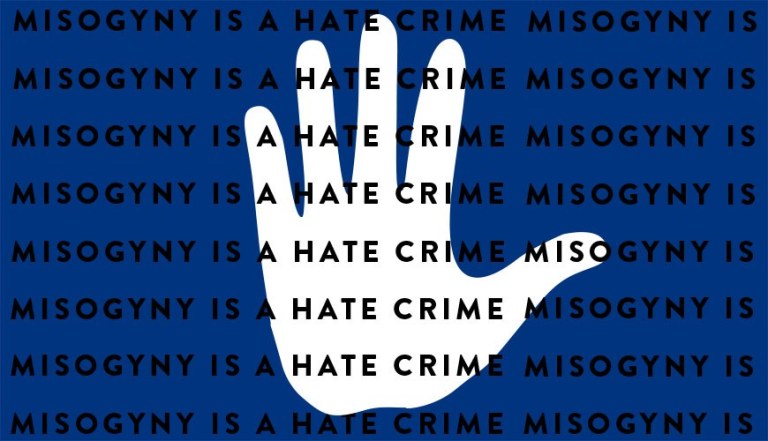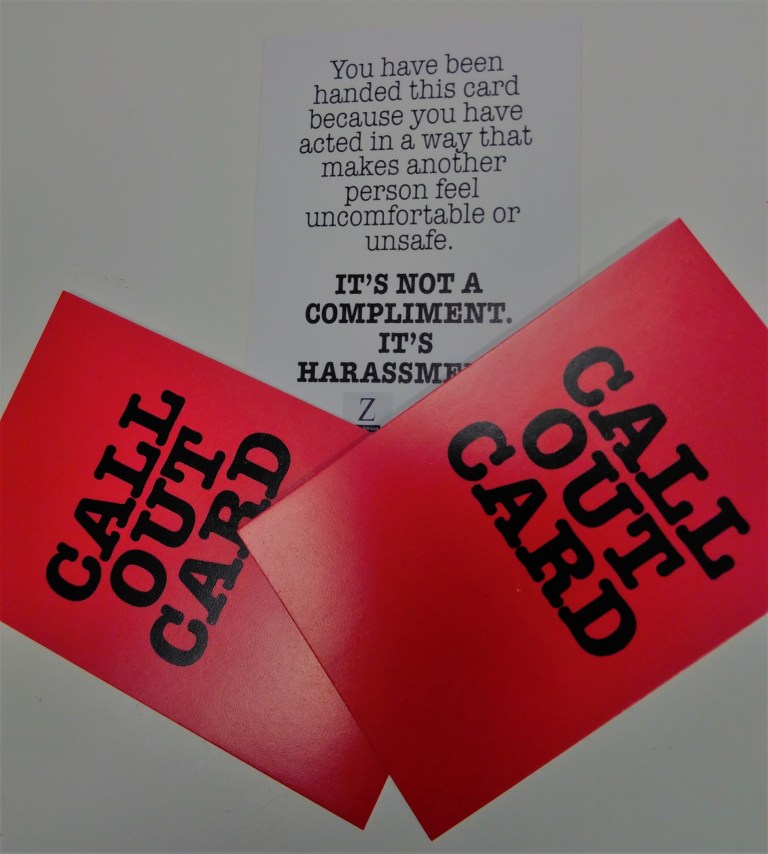This week, 33-year-old marketing executive Sarah Everard’s remains were found in the UK after she went missing last week. She was attacked and murdered while traveling home from a friend’s house. A police officer was arrested on suspicion of her murder.
Her story is tragic — and it’s the worst-case scenario that makes so much street harassment unnerving. We wonder: which harassers might escalate their behavior and strike us, follow us, grab us, assault us and even kill us?
Her story also confirms that police officers may NOT be people we can turn to for help and protection… instead they may ignore, blame, harass, assault or even kill us.
Since Sarah went missing, thousands of women have shared their own stories of assault and street harassment by men. A new representative study in the UK released this week backs up their stories – 97% of young women have faced sexual harassment and 80% of all women have experienced street harassment.
Of course, street harassment is a global problem, a global crisis, and these figures and stories in the UK are just the latest documentation of it.
During our collective year of global health pandemic, the issue of street harassment has often become a lower priority, a lesser problem to address, but Sarah’s story shows that street harassment is also deadly. The study shows that street harassment is also a far-reaching crisis.
Share Your COVID Street Harassment Stories
Ahead of International Anti-Street Harassment Week (April 11-17), we invite you to share your experiences and stories with street harassment across the pandemic – and/or submit artwork to stopstreetharassment@gmail.com.
We’ll share them across the week to help raise awareness that this is STILL a critical issue that we must address, we must work to stop.
And we must hold men — yes, all men — accountable for the culture they directly or indirectly contribute to and benefit from that turns women into prey who cannot safely walk home.
Anti-Street Harassment Week Partners & Activities
Thank you to Safecity/Red Dot Foundation, Catcalls of NYC, Hollaback! and L’Oreal Paris as well as other partners for their help this year’s Week of Action!!
As a reminder, we imagine much of the world will still be practicing social distancing next month, and so we encourage you to engage in online action (and use the hashtag #StopStreetHarassment) or, if it’s safe to do so, take small offline actions, like go with a friend or two to chalk on sidewalks or post flyers in your community.
If you have ideas already, you can let us know what you’ll do by filling out this form, and you can let us know if you’d like to be listed on the website as a participating co-sponsor, stopstreetharassment@gmail.com.
March 27 Event
Catcalls of NYC turns 5 years old this month and we’ll be hosting their anniversary event on our Facebook Page on March 27. More details to come!

 My name is China Fish and like many women, I have experienced frequent and unwanted sexual harassment as I walk our city streets. In 2010 I created a satirical performance about this very subject called ‘Lucky Saddle’, two words shouted at me by a man as I cycled in Bedminster when I was around 21 years old. It is an issue close to my heart, as, like most humans, I desire to be able to move freely and safely through the world I inhabit.
My name is China Fish and like many women, I have experienced frequent and unwanted sexual harassment as I walk our city streets. In 2010 I created a satirical performance about this very subject called ‘Lucky Saddle’, two words shouted at me by a man as I cycled in Bedminster when I was around 21 years old. It is an issue close to my heart, as, like most humans, I desire to be able to move freely and safely through the world I inhabit.
 Take action in Bristol!
Take action in Bristol!